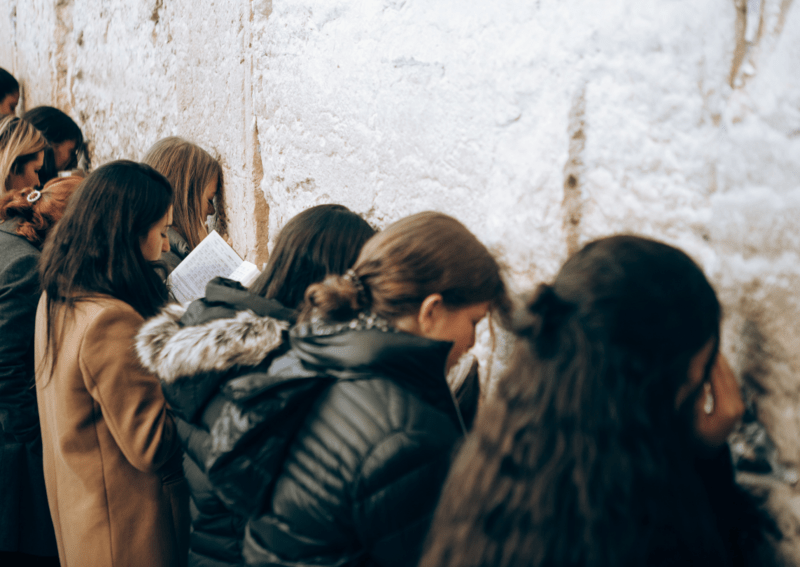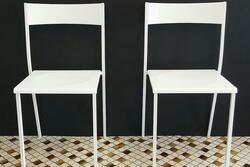Create a Space for Women to Pray in Our Synagogues
For as long as I can remember, I’ve always gone to synagogue on shabbos with my mother. While some people in our community typically come a bit later, my mom makes it a point to get there right when services begin, with me trailing behind her. For a while, I didn’t appreciate having to go to synagogue. It was maddening not getting to sleep in on Saturday mornings, especially when all my friends were. Over time, however, I learned to appreciate not only the incredible experience of praying with a congregation, but also my good fortune to live in a community where there was a space for me to pray.
Growing up in Kemp Mill, MD, I attended a fairly liberal Modern Orthodox synagogue. There was equal seating available for men and women, women were permitted to deliver sermons from the pulpit, and there were learning opportunities for people of all genders. At my synagogue, I never felt discriminated against. It was only when I left the comfort of my own community that I realized just how unique my version of “normal” was.
When I was in fifth grade, my family went on a road trip to Minnesota and we stopped in a synagogue along the way for mincha. I walked in, ready to take my seat and pray, and looked around for the women’s section. What I found wasn’t even a quarter of the size of the men’s section—rather, it was just a squared-off corner in the back with chairs arranged unceremoniously. I was appalled, and immediately asked my mom why the women’s section looked like that. She just laughed, and said this was the “penalty box.” My mother’s indifference and lack of surprise at this women’s section shocked me more than anything else. Apparently, this kind of women’s section wasn't uncommon.
Another time, I found myself praying at a synagogue in Baltimore and walked into the four-by-four area designated for women to find a man sitting there. The luxuriously large room where he was allowed to pray wasn’t even close to full. But apparently, it wasn’t large enough for him, so he’d decided to come to the women’s section. I coughed loudly and he looked at me as if I were doing something wrong: like I was the person who didn’t belong. It wasn’t just the principle that bothered me; it was the double standard. If I’d sat down in the men’s section, I would’ve received a lot more than a cough in response.
These were the first instances, and unfortunately not the last, in which I was exposed to the exclusion of women that occurs at too many synagogues. Since my first banishment to the “penalty box,” I’ve witnessed many other communities' ways of dividing up their synagogues: some put women on a balcony, some put women in a separate room behind a wall, some behind what appear to be shower curtains, and some don’t have a place for women at all. I’ve often found men sitting in the women’s section simply because they can, and young boys sent by their fathers to the women’s section to play. ("After all, it’s not like anyone else is using it.")
It can be hard to be a Modern Orthodox Jew. While we try to be open minded to the secular world, I often find that feminist ideology clashes with Jewish practice for me. Choosing which side to land on—where to draw my values from—is a constant inner battle. This is made far more challenging when I have to fight repeatedly for the opportunity to do a mitzvah. I recognize that some people have halakhic issues with giving men and women the same role in many aspects of Judaism, but no rabbi has ever disputed that women, like men, are allowed to pray. Synagogue is supposed to be a place where a person prays to God, praising God, revealing the most vulnerable parts of their soul, and begging for whatever it is they most desperately need at that time. This is not a place where anyone should feel unwelcome or uncomfortable, but many synagogues perpetuate inequality and harmful notions about gender by not giving women an adequate place to pray. Being shunted to the side so I can’t see what’s happening in the minyan, and sometimes not even having a place to sit at all, is deeply hurtful, and makes me feel like an outsider in my own religious space. I worry that there’s only so long women can be denied a space to participate in Jewish rituals until we stop trying.
People might say that this is just a logistics issue: more men show up, so they get more space. But to me, it’s more than that. There’s a damaging assumption underlying these tiny women’s sections (or lack of women’s sections at all)—that women don’t want to or need to daven. I’ve been to shabbatons where the schedule allowed men to pray while women were supposed to set up for the next meal. This presumption—that no women could possibly be interested in praying—was not only deeply disheartening, but also just plain awkward. When I asked to pray instead of preparing the dinner, people gave me dirty looks and assumed I was trying to get out of doing work. When I finally went to pray, men gave me side-eye the entire time, judgment written all over their faces.
I understand that this problem won’t be solved overnight. I just ask anyone who’s reading this to put yourselves in my shoes (if you aren't already). Imagine you’re at a Jewish event, in a Jewish environment, trying to participate in a ritual that you truly care about—but you’re not given the opportunity to do so. These experiences are disillusioning—and I think they could be easily avoidable. If we all accept that women do, in fact, want to attend synagogue, and synagogues open up spaces accordingly, no woman will have to face this again. This problem can be solved—and all it takes is respect. So please: respect women, respect our right to religion, and accommodate spaces accordingly.
This piece was written as part of JWA’s Rising Voices Fellowship.








if you were to delve deeper into the matter, you would find that your experience is not just the tip of the iceberg of a deep-rooted misogyny in the halakha and hashkofe but a systemic foundation in Orthodoxy. The protestations of any female representatives of modern orthodoxy that everything is wonderful are pure self-deception and encourage the perpetuation of this chauvinism.